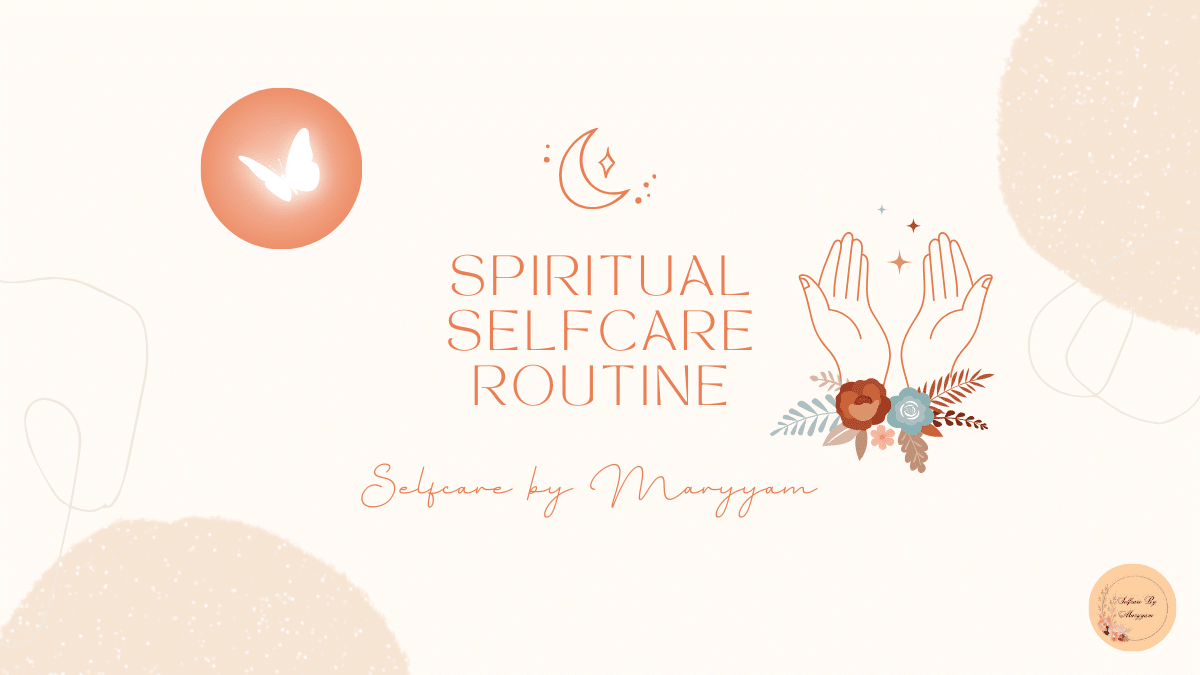Today in this blog, I will share how to incorporate prayer into your daily spiritual selfcare routine.
Table of Contents
Introduction
Prayer plays an important role in spiritual selfcare routine. A person feels peace and purpose. Prayer connects a person with Allah, which reduces stress and anxiety. Prayer promotes emotional balance and silence. With the help of prayer, we can straighten our faith. We can find comfort and guidance in our challenging times. Prayer also encourages mindfulness. Praying mindfulness helps us stay present and self-aware. It also makes our bond strong with the fellow believer’s prayer for the first time for personal reflection. It enables a person to do self-assessment and grow. It has a positive impact on our minds. It enhances both our personal and communal growth.
Understanding the Concept of Prayer in Islam
Definition of Salah and its importance:
Salah is a prayer that we Muslims do only for Allah 5 times a day. We can also pray more, but 5 times a day is compulsory. Salah plays an important role in our lives. It has a high status in Islam. It helps to strengthen our faith. It helps to fight the challenges of life. We get unbeatable strength from it. Salah removes the sins of a person. Allah loves those who pray on time and with concentration.
Types of Prayers in Islam:
There are 4 types of prayer in Islam.
- Obligatory prayers (Fard)
- Wajib
- Sunah
- Nafl
Obligatory Prayers: Fard prayers are the ones for which every Muslim has to pray. The names of these Salahs are Fajr, Duhr, Asar, Mugrib, and Isha.
Wajib Prayers: Wajib prayers are also obligatory. If one is not praying for them, then he is considered sinful. Like Salat-al-witr, festival prayers, and 2 rakah during tawaf.
Sunah Prayers: Sunah prayers are the ones which our beloved Prophet Muhammad (صَلَّى اللهُ عَلَيْهِ وَسَلَّمَ) offered. These prayers are compulsory with obligatory prayers. These are 2 rakat before Fajr, 4 rakat before dhuhr fard 2 rakat after duhar fard, 2 rakat after Mugrib, and 2 rakat after isha fard. Allah loves the person who offers these 12 rakat per day.
Nafl Prayers: Nafl prayers are the ones that we offer to seek the closeness of Allah. Like Tahajud and nawafil.
Setting the Time for the Prayer Routine
Making a Prayer Schedule
Make a proper schedule of prayer for a spiritual selfcare routine. Decide your work according to your prayer’s timings. What I do is that First I write down all the work which I am supposed to do the whole day. Then I decide which work I will complete before dhuhr and after dhuhr and so on. As I usually help my mom before dhuhr. I work on my projects before Asar. After Asar, I do dhikr and read the Quran.
Finding a Space for Prayer
Make a prayer corner at your home. Find a space where no one can distract you. Decorate it and keep your prayer place clean and peaceful. Put the Quran and prayer books there. You can also make it beautiful to attract the other people towards prayer.
Preparing for Prayer
Performing Wadu: Ritual Purification
Wadu is compulsory before salah. We can not pray without performing wadu. We also have to perform wadu in the way defined by our Prophet Muhammad (صَلَّى اللهُ عَلَيْهِ وَسَلَّمَ). Always do wadu by saying bimillah. Do it mindfully to gain the inner peace.
Centering Your Mind and Heart Before Prayer
Prepare your mind before start praying. Keep yourself calm. Take a deep breath and suppose that you are in front of Allah, or Kabba. Then start your prayer by focusing on the verses. Feel the peace in your heart. Pray in the way that you can see Allah, and you are praying in front of Allah. Otherwise, assume that Allah is watching you. These practices help you pray efficiently.
Start your Day with Fajr Morning prayer
The Spiritual Selfcare Routine By Fajr
Fajr time is a very calm time. Fajr prayer also keeps you calm and increases your beauty. Starting your day with the morning prayer adds Barakah to your whole day. Try to start your day with Fajr, and then see the miracles in your life.
Tips for Waking Up Early and Praying on Time
Here I am sharing a few tips which I learned from my experience.
- Sleep early.
- Set an alarm and keep it away from you so you can get up from your bed to close the alarm.
- Watch a video that shows the benefits of praying on time and waking up early in the morning. This will help you be motivated to get up early.
- Plan some rewards for you for getting up early.
Midday Prayers – Dhuhr and Asar
Finding Time for Dhuhr and Asr for Spiritual Selfcare Routine
In your busy routine of life, always find time for your midday prayers. Prayer should be your first priority in life. If you observe your life, you will notice a lot problems in it. But if you pray on time then you see the magic of less stress. If we ignore Allah because of our work then Allah will increase the work load and you will still not get the peace. On the other hand, if you pray on time and keep Allah first then Allah makes the things easy for you and you will feel the peace in your life.
Tips for Maintaining Consistency
Always prepare your mind and wait for the next prayer. As you hear the Azan, whatever you are doing, just leave it and go towards the Masjid or your prayer corner. Set your work according to the prayer times.
Night Prayers – Mughrib and Esha
The Importance of Maghrib and Isha in Spiritual Selfcare Routine
Maghrib and Isha are important for spiritual selfcare routine. These are at the end of the day and provide the opportunity to reconnect with your Allah. They constitute a time to reflect on one’s actions during the day and be thankful for everything. Maghrib is performed just after sunset, allowing individuals to pause and give thanks for what they have enjoyed throughout the day, while Isha prayer offers a moment of regeneration before sleep. Both of these prayers help to purify one’s mind as well as the soul, thus promoting tranquility and personal growth.
Evening Ritual Formation around Prayers
This would transform your evening’s spiritual selfcare routine by integrating Maghrib and Isha into evening rituals. Start by designating a quiet area devoid of interruption where you can pray in seclusion. A vibrate recitation of any part of the Quran or silent meditation before or afterwards can be done. Coupling these prayers with activities like diary writing, silent reading, or Thanksgiving reinforces the sense of calmness that accompanies them through mindfulness. This will make it a calming routine that anchors us back down, which ensures both spiritual sleep and sound.
Conclusion
Including prayer as a part of the daily spiritual selfcare routine is a life-changing practice that feeds the soul and mind. By internalizing the meaning behind each, from Fajr’s dawn to Isha’s nighttime, one can create an organized routine to bring tranquility, meaning, and smoothness in one’s life.
Additionally, prayer improves our mindfulness towards Allah, necessary for emotional stability and a sense of community. When you commit specific timings and places for prayers, then you can deepen your spirituality for a more fulfilling experience on a day-to-day basis while making it easier for you to handle difficult situations in life. Accepting prayer as a crucial element of self-care thus ensures that your path goes consistently along with faith leading to personal expansion and better existence holistically.
FAQs
What are examples of spiritual selfcare routine?
Examples of spiritual selfcare routine are praying on time, reading the Quran with full concentration, and reading books related to Islamic history.

